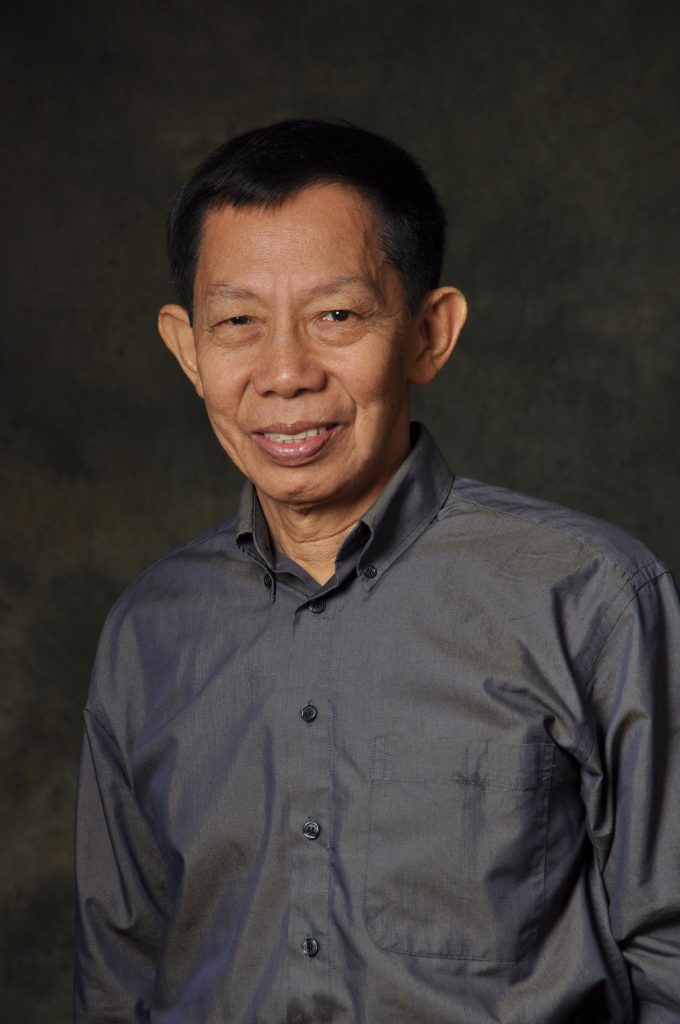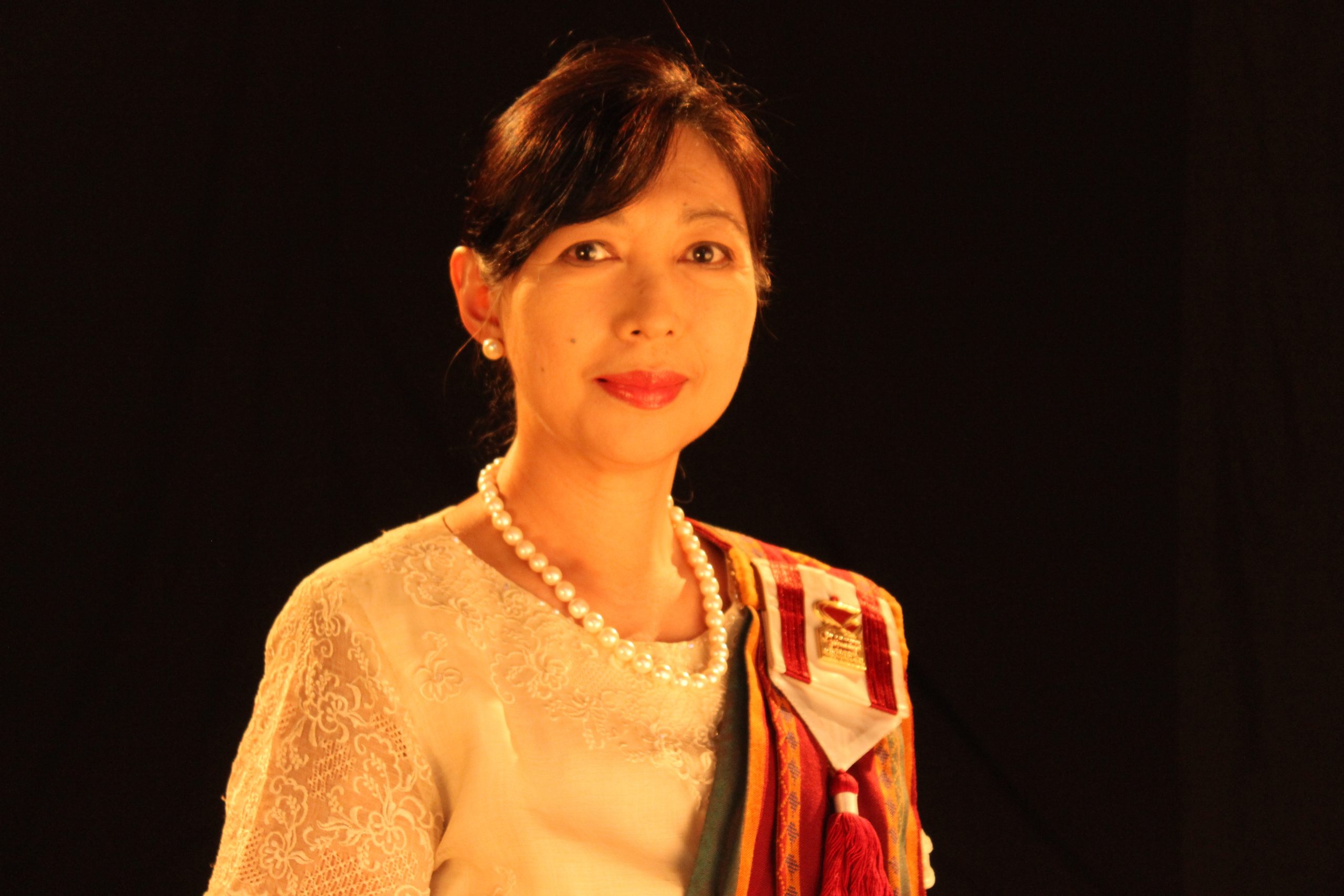Felipe M. de Leon, Jr.
Felipe M. de Leon, Jr, obtained his A.B. Humanities Degree, cum laude, at the University of the Philippines in 1969, and later pursued graduate studies in music theory and composition in the same university. He then undertook studies in Developmental Anthropology at the Asian Social Institute, where he presently teaches social transformation courses. He served as Chairman of the Department of Humanities of U.P. Diliman from 1976-82. He was elected President of the Pambansang Samahan sa Sikolohiyang Pilipino in 1985-86. His intense interest in Philippine culture, especially the indigenous, soon became widely recognized. He became the first Head of the National Commission for Culture and the Arts’ (NCCA) Subcommission for Cultural Communities and Traditional Arts, 1992-98. He later became the Head of the Subcommission on the Arts of NCCA and its National Committee on Music for several terms. Consequently, he was elected as the Chairman of the NCCA for two consecutive terms from 2011-2016.
He was Commissioner of UNESCO Philippines (1999 – 2002) and Chairman of its Committee on Culture (2002). He also became Vice President of the International Music Council (IMC) of the UNESCO from 2005-2011. He is currently a member of the Gawad sa Manlilikha ng Bayan(GaMaBa) Executive Council, which he served as Chair from 1993-2007. He was installed last December 2022 as the President of the Asian Social Institute, a 61-year old graduate school for the social sciences.
Among his published works are Philippine Art and Literature, Volume III of the Filipino Nation Encyclopedia, published by Grolier International in l982; On Art, Man and Nature: Selected Readings in the Humanities; Celebrating the Creative Living Presence: A Culture of Healing; and Iba Ang Mulat Sa Dilat. He was the main author of the ASEAN Declaration for Cultural Heritage.
His many awards include the Gawad Chancellor Award by the UP Diliman; Achievement Awardee of the National Research Council of the Philippines; Bayani ng Alamat Awardee by the UP Manila; one of ten Outstanding Citizens of Quezon City; Patnubay ng Kalinangan Award from the City of Manila; Gawad Parangal by the Department of Foreign Affairs (DFA) for outstanding service to the DFA; Gawad Dangal ng Wikang Filipino by the Komisyon ng Wikang Filipino, 2022; and Golden Leaf Presidential Award, 2023 by the Philippine Leaf Awards.

Elizabeth L. Enriquez, PhD

Elizabeth L. Enriquez (PhD, University of the Philippines Diliman) is Professor Emeritus of Broadcasting. She has been teaching in the College of Mass Communication, University of the Philippines Diliman, since 1990, developing and handling courses in media history; media theory; political economy of media; media literacy; and media, gender, and sexuality. She is author of several publications, including the book Appropriation of Colonial Broadcasting: A History of Early Radio in the Philippines, 1922-1946 (UP Press 2008) and the monograph with video documentary Radyo: An Essay on Philippine Radio (CCP 2003), both pioneering and still the only extensive works on Philippine broadcast history, apart from the recently published CCP Encyclopedia of Philippine Art, 2nd Ed. (2017), with an online version (https://epa.culturalcenter.gov.ph/encyclopedia/), in which she serves as writer and editor of the Broadcast Volume. She is a partner in the called Decolonizing Southeast Asian Sound Archives (DeCoSEAS).
She was a Fulbright Scholar twice, in 2001-2002 to conduct dissertation research at the US Library of Congress and the US National Archives, and in 2011-2012 as Senior Scholar at the University of Maryland.
Before teaching in the University of the Philippines, she worked in radio and television for 18 years, 1971-1989, mostly as a broadcast journalist.
In 2022, Professor Enriquez led the celebration by UP of the 100 Years of Broadcasting in the Philippines, which highlighted a conference and several video productions that seeded an Archives of Broadcasting in the Philippines.
Feliz Anne Reyes Macahis
Feliz Anne Reyes Macahis is a Filipino composer.
Her music, woven with a steady hand from fine glass thread, speaks passionately through an intricate world of vocal, instrumental, and electronic resources.
It speaks of furtive passages through the night, of the faint outlines of a room whispering into focus as you open your eyes in the morning, scattered embers of fugue dreams in the last few moments before waking.
It sings the quiet bells of an uncertain memory, their wan echoes ringing out in the distance; of lines in a language you used to know whispered into your ear by a voice you think you recognize.
It tells of wandering drunkenly home through a nameless town at some unknowable hour of the night, alone save for the blurred melancholy of the street lamps, your eyes lifted to the constellations that reach soundlessly down through the evening; of lying in a vast, vacant field, dreaming of water and copper, the whole universe in your hand and the stars like a thousand little bells. (K. Laba, 2016)
Selected new works dedicated to her artistic doctoral research exploring the potential of traditional epic singing in the context of contemporary music were presented in the following events: Gaudeamus Festival (Utrecht), Royaumont Festival (Asnières-sur-Oise), Nuova Consonanza (Rome), and Concert ManiFeste (Paris). These works, along with other pieces, were broadcasted in her Radio Portrait with the 01 (Sprache als Klangstruktur, Zeit-Ton Porträt: Die philippinische Komponistin Feliz Anne Reyes Macahis).
Recent awards include the ULYSSES Co-Commission from IRCAM and the Fondation Royaumont (2021), the Startstipendium (2021) and Staatstipendium (2022) from the Austrian Federal Ministry for Arts, Culture, Civil Service and Sport, the Aide à l’écriture d’une œuvres musicale originale from the Ministry of Culture/ DRAC Îles-de-France (2021), composer-in-residence at the Künstlerdorf Schöppingen (2022), and the commission by the Osterfestival Tirol funded by the Ernst von Siemens Music Foundation (2023). Feliz is a member of the Wiener Festwochen’s Akademie Zweite Moderne (2024). She has been granted a 9-month Composer-in-Residence at the Künstlerhof Schreyahn in 2024-25.
Macahis studied composition with Jonas Baes, Kamran Ince, Oliver Schneller, Joachim Heintz, and Beat Furrer. She is a doctoral candidate at the University of Music and Performing Arts Graz.

